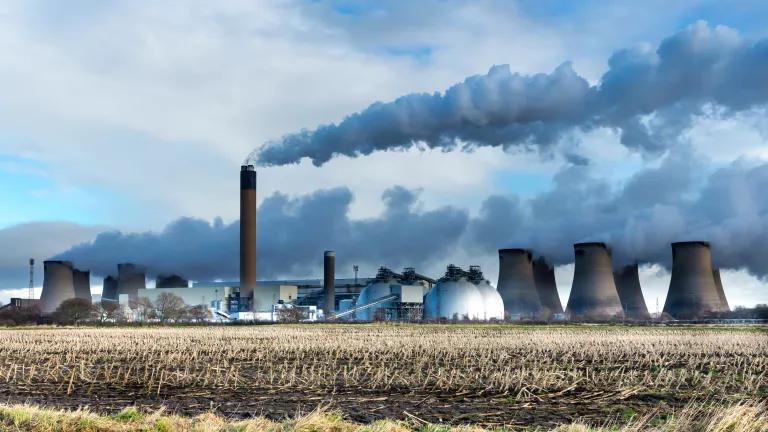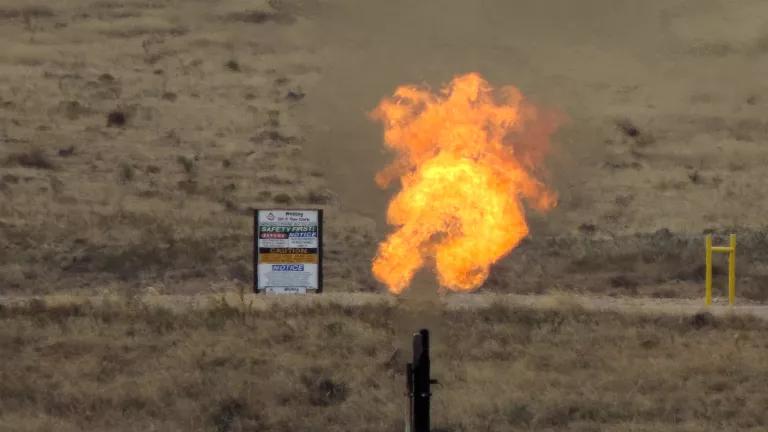New IPCC Report Recognizes Risks of Bioenergy
The IPCC sends a clear and final warning that we must rapidly cut emissions to avert climate disaster. It also emphasizes that burning trees for bioenergy is a very risky way to do this—and may not even work at all.

(C) Mati Kose
Recently, the Intergovernmental Panel on Climate Change (IPCC) published its final new report in a three-part series, prepared over years by hundreds of the world’s leading scientists.
It sends a very clear and final warning that we must rapidly cut emissions to avert climate disaster. It also emphasises that using bioenergy - especially the burning of trees - is a VERY risky way to do this, and may not even work at all.
The biggest takeaway from this report is that the IPCC has SIGNIFICANTLY reduced the amount of bioenergy with carbon capture and storage (BECCS) it thinks is necessary to achieve net zero. The IPCC assumes that, in the future, bioenergy will be used with Carbon Capture and Storage. But it recognises that even then the climate benefits of BECCS (Bioenergy with Carbon Capture and Storage) are disputed, and that the environmental risks are clearer than ever. Because of this, it drastically reduces the role of BECCS in its net zero scenarios, predicting that BECCS will remove only 2.5 billion tonnes of emissions every year (compared with its previous predictions BECCS could remove up to 16 billion tonnes per year). The report supports this decision with statements such as: “[BECCS] may not prove as effective as expected, and its large-scale deployment may result in ecological and social impacts, suggesting it may not be a viable carbon removal strategy in the next 10-20 years.” It also states that “[l]ife-cycle emissions impacts from bioenergy are subject to large uncertainties and could be incompatible with net zero emissions in some contexts.” This all builds off of the second report in the series – which was released in March – in which it recognized more risks of bioenergy than ever before.
It also recognizes the risks of bioenergy more than ever before. Both this report and the one the IPCC released in March highlight the major risks bioenergy can pose to nature (e.g., desertification, land degradation, biodiversity), food production, and water availability. In 2021, evidence mounted showing the significant impacts of biomass on global biodiversity. For example, information on logging in Estonia’s protected areas became so concerning that the Estonian government banned logging in these areas for more than two years. Further, new satellite image analysis shows that logging of forests in the US Southeast has exceeded their growth (contrary to biomass industry claims) and decreased their carbon stocks.
In its moderated language, which must be signed off by all governments, this is IPCC code for a clear warning that, while its models include BECCS, they are just that -- models. They are not meant to describe reality and do not reflect the significant environmental and climate risks posed by this technology.
But while the IPCC urges governments to immediately cut emissions, protect forests, and use BECCS only in a very minimal way (if at all), the UK Government plans to do the exact opposite by increasing reliance on large-scale burning of trees for electricity to meet its climate goals. Its 2050 Net Zero Strategy, published in autumn 2021, states that it plans to rely on a significant level of BECCS over the coming decades, which is impossible without destroying global forests or carpeting the UK countryside with bioenergy crops (or both). And the UK is already the world’s subsidiser of biomass energy.
We already know the impacts of both approaches. Drax power station recently published an annual report showing it burns over 8 million tonnes of wood every year. Drax is part of a growing global wood pellet industry driving the destruction of some of the world’s most precious forests. And the EU has tried the “grow fields full of crops for fuel approach,” which actually increased greenhouse gases because it displaced food production, causing deforestation and climate damage elsewhere.
The best chance for the UK Government to heed the IPCC’s warnings? Its new Biomass Strategy – due out later this year – must recognise that bioenergy is NOT zero carbon and that it has serious environmental and social impacts. It must stop handing over £2.7 million per day in subsidies to bioenergy generators - and to refuse to grant new biomass subsidies, instead redirecting these funds to technologies that will actually cut emissions (e.g., wind, solar, home insulation to help lower people’s energy bills).




